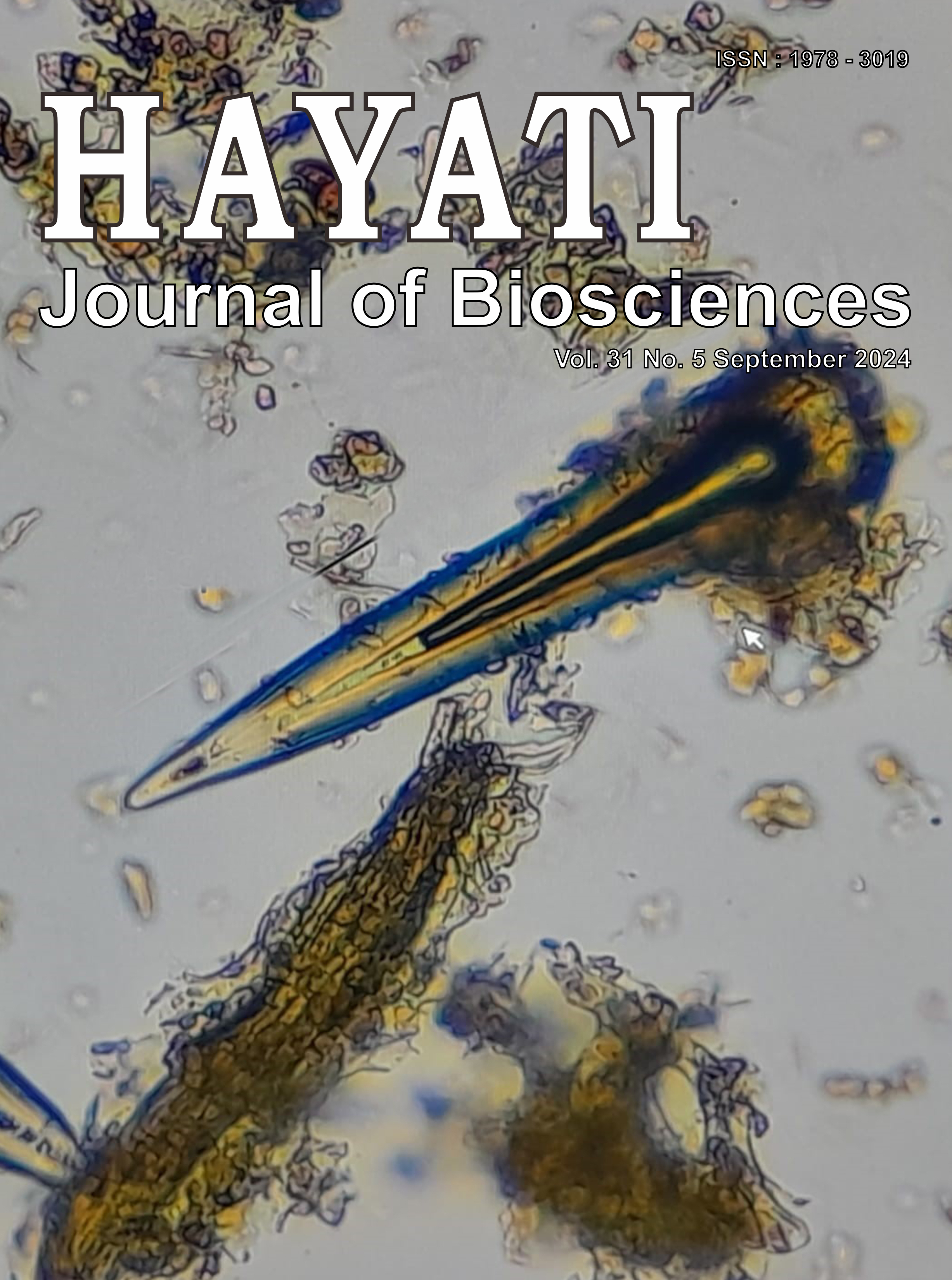The Effect of Gel Secretome Hypoxia Mesenchymal Stem Cells to Increase P38 and VEGF Expression in Rats’ Diabetic Wounds
Abstract
Mesenchymal stem cells (MSCs) under hypoxic conditions can produce secretomes containing growth factors such as vascular endothelial growth factor (VEGF), accelerating angiogenesis in wound healing disorders in diabetic ulcers. This study aimed to prove the influence of gel secretome MSC hypoxia administration on increasing VEGF and P38 gene expression in rats’ diabetic wounds. An in vivo study was conducted on 25 male Rattus norvegicus, randomly divided into four groups: base gel as a negative control, Gentamycin as a positive control, and gel secretome at a dose of 100 µL, and 200 µL/kg body weight. The differences in P38 and VEGF gene expression were tested using quantitative real-time polymerase chain reaction (qRT-PCR). Wound closure appeared to be fastest in treatment groups at a dose of 100 µL/kg body weight, followed by a dose of 200 µL/kg body weight, followed by Gentamycin and base gel group. The wound closure rate percentage was significantly different in the intervention group compared to the control group (p = 0.000). The results showed a significant difference in P38 and VEGF gene expression between the treatment and control groups (p = 0.000). This study demonstrates the administration of gel secretome hypoxia mesenchymal stem cells increases P38 and VEGF expression in rats’ diabetic wounds.
Downloads
Copyright (c) 2024 Tarrayuana Rhamadia Hasannuri, Mas Rizky A.A Syamsunarno, Agung Putra

This work is licensed under a Creative Commons Attribution-NonCommercial 4.0 International License.
HAYATI J Biosci is an open access journal and the article's license is CC-BY-NC. This license lets others distribute, remix, tweak, and build upon author's work, as long as they credit the original creation. Authors retain copyright and grant the journal/publisher non exclusive publishing rights with the work simultaneously licensed under a https://creativecommons.org/

























.png) IPB University
IPB University Department of Biology
Department of Biology The Indonesian Biological Society
The Indonesian Biological Society 

